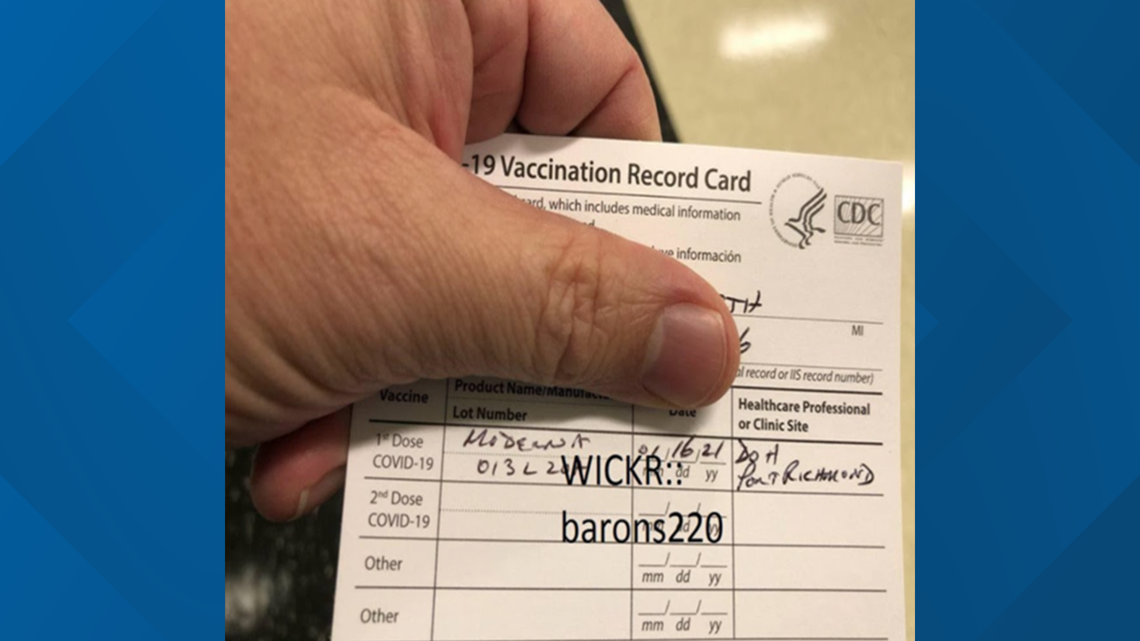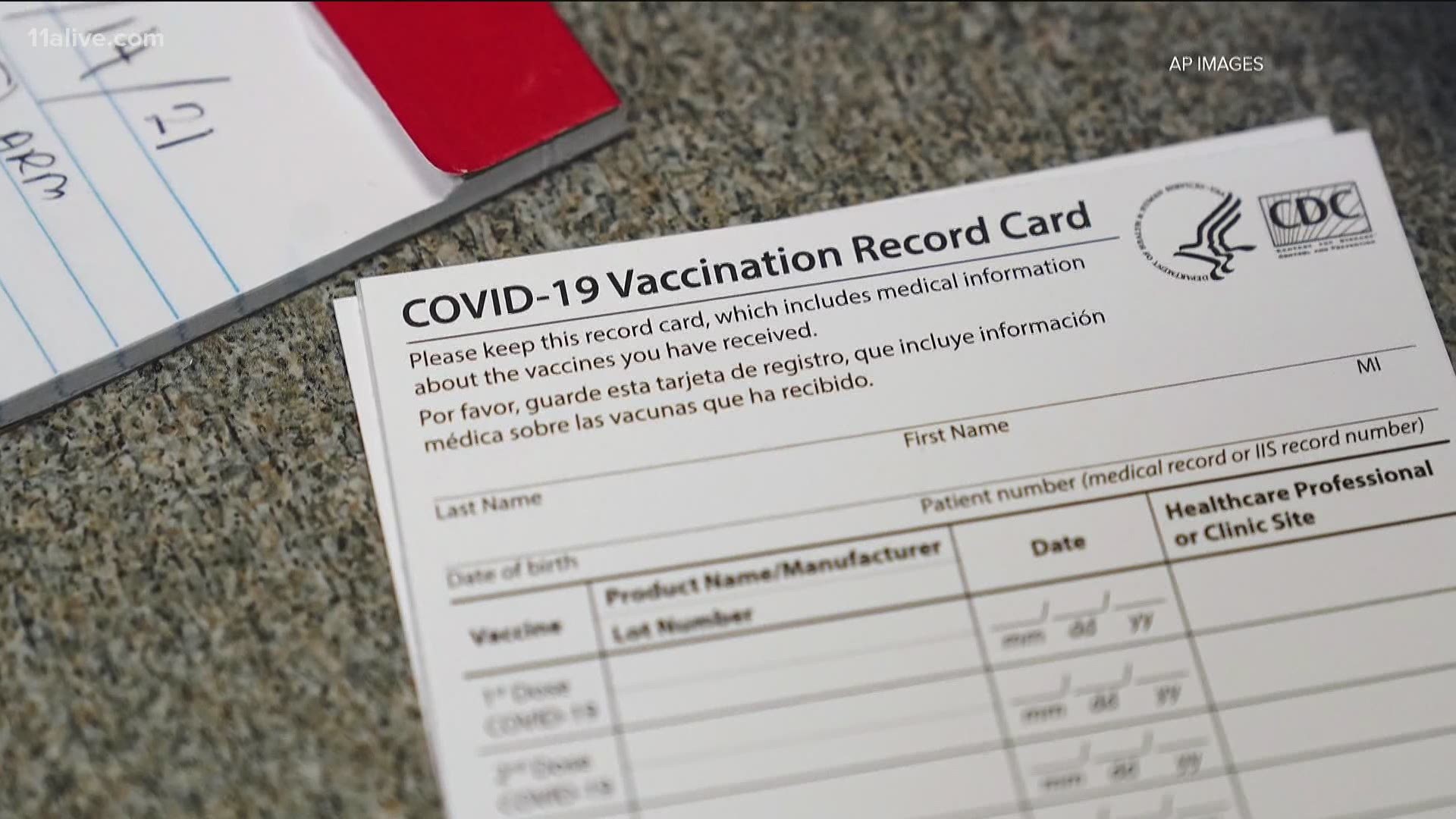ATLANTA — Georgia is expanding its vaccine eligibility to all adults 16+, which means soon there will be a lot of happy and relieved people, excited to have their vaccine cards. Some might even think to snap a picture of their vaccine card and post it on social media.
But here’s the thing: Don’t do that.
Scammers can easily use the information on your card to access a ton of your personal information. In fact, all they need is your name and birthday.
Just how much information can they get using those two details?
“Financial records, personal records, medical records, getting to bank accounts, stealing your identity and using it for untold purposes like opening credit cards - you name it,” listed Brian Linder, an emerging threats expert with Check Point.
“You're inviting bad actors to take that, and then go ahead and sell it, or use it to exploit your identity," he said. "Social media, of course, is in no way confidential, private in any way.”
Check Point is a cyber threat intelligence company that collects and researches cyber attach data. Recently, they’ve discovered that not only are people stealing information from vaccine cards, but they’re using those pictures and posts to create fake vaccine cards that are sold on the dark web.
“We went through the process of proceeding to attempt the transaction, and it’s a couple of $100,” Linder said. “We have evidence that they’re impersonating the CDC. They’ll produce one for you and send it to you within 24 hours or less. They know the quicker they can turn these around - these fake documents - the more tempting it will be.”
Some "vendors" even accept Bitcoin to avoid tracing.
Why would someone want to buy a fake vaccine card?
“Some people don't want to get the vaccine, but they realize that their freedoms might be limited or their ability to work or travel," Linder explained. "So, there would be an incentive for them to buy a vaccine card. The cybercriminals know this. And they're looking to capitalize on the public's interest and urgency in both getting a vaccine but also, in some cases, avoiding the vaccine. So, they win either way, at your expense, unfortunately.”


Linder explained searches for fake vaccine cards and negative COVID test results spiked 300 percent since January. Yes, you read that right. Negative COVID test results are also being offered for sale on the dark web … along with fake vaccines.
“Which is particularly scary. Can you imagine paying $500 or $1,000, to buy a vaccine, and actually injecting that into yourself? I can't.”
Beyond the risk of injecting something sinister into your veins, Linder explained people also chance giving their personal information to strangers who are creating these fake documents.
“You’re paying the money and you’re giving them your personal information and there are abilities to take your money and your financial information and name and correlate that with other publicly available information," he elaborated. "Now you have a mess to clean up, clean up your credit. That’s the real cost.”
Linder said the risk isn’t worth the “reward” of getting a fake anything related to COVID and vaccines. He also said if you’re excited about receiving the vaccine, a simple word post would be better.
“There’s no problem in saying, 'I’m glad I’m vaccinated' on social media, but don’t post your card, don’t post anything with personal information.”
And if you think blurring your information or using an app to black out important parts, there are ways to reverse those techniques.

